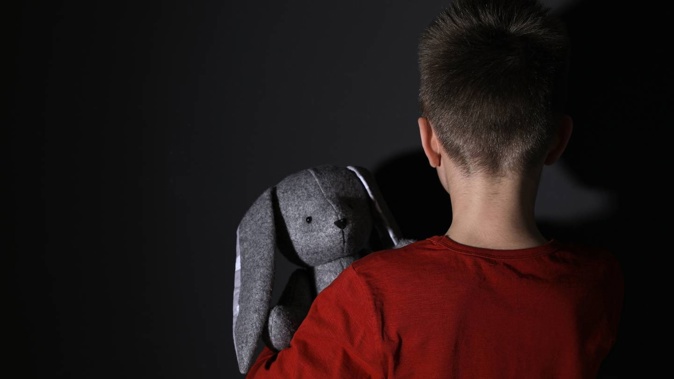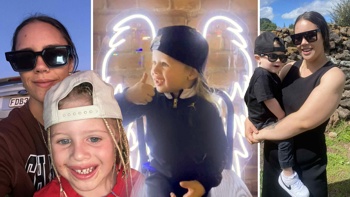
WARNING: This story discusses physical assault and neglect.
Entrusted to a “caregiver” when he was 6 years old, a boy suffered two years of physical assaults and neglect. He was starved, made to stand out in the rain with no clothes on, and to sleep outside with no bedding.
The ill-treatment inflicted by 50-year-old Gisborne woman Mary Shelly Wharepapa was “heartless and cruel”, Judge Turitea Bolstad said.
Police only became aware of it when the boy ran away last October and a member of the public noticed him wandering around town.
Wharepapa had not bothered to notify anyone that the boy in her care was missing. A week later she assumed he must be in safe hands as the benefit she received to look after him had stopped.
Judge Turitea Bolstad sentenced Wharepapa in Gisborne District Court this week to 12 months’ home detention. She had pleaded guilty to ill-treating and neglecting a child, assault with intent to injure, and representative charges of assaulting a child, and assault with a blunt instrument.
A lengthy police summary of facts recorded the boy’s shocking experience of life with Wharepapa.
Throughout the two years he was with her, Wharepapa frequently kicked, punched, and pushed him with open and closed fists, often issuing multiple strikes at a time and to his head, sometimes causing his mouth and nose to bleed.
Once she hit him with such force that he fell down a short flight of steps, hit his head, and was knocked unconscious for an unknown period of time. Wharepapa didn’t bother to get him any medical attention.
She regularly used weapons to execute her assaults, mainly kitchen implements — wooden spoons, pie cutters, and spatulas. With those items she targeted all parts of the boy’s body and was able to deliver even more painful blows.
She continually ill-treated the boy as punishment for perceived bad behaviour by restricting his access to food, making him stand outside naked in the rain, and making him sleep outside without bedding.
She failed to send him to school and at times would lock him in a washhouse.
The only bed he ever had in Wharepapa’s house was a mattress on the lounge room floor.
A medical examination at the end of his ordeal, revealed he had all manner of scars and bruising to his entire body.
Judge Bolstad took several long pauses during the hearing, appearing to need the time to fight back her emotion.
She had also recited an almost equally shocking cultural report detailing Wharepapa’s own violent and abusive, “Once Were Warriors styled” upbringing, which made her suicidal and from which she often tried to run away.
At 24 she had her first child and was in a violent relationship, remaining there until she could find the courage and strength to leave.
Counsel Daniel Berry said the report showed Wharepapa had fallen into the same pattern of behaviour that she was subjected to as a child.
“Yeah, I get that but where does it end,” Judge Bolstad said.
Wharepapa had tried to justify her actions to the writer of a pre-sentence report, saying she had tried to discipline the boy who she hadn’t initially realised had issues, lying, stealing, and breaking things.
“If she knew then what she knew now she would’ve tried to get help.”
She claimed not to have sent him to school because of Covid and that he already had scars when he came to her because he was “accident-prone”.
The boy was now with his mother in Hawkes Bay. While the court had no information about his current condition or state of mind, the judge said she could imagine the likely psychological trauma that now burdened him.
It was a “no brainer”, which Wharepapa must have known, having gone through something similar herself as a child.
“All the boy needed was food, shelter, and love.”
It wasn’t much to ask, yet Wharepapa failed to provide any of it, the judge said.
“He was defenceless, he was vulnerable, and completely reliant on you.”
Wharepapa seemed to be a “heartless and cruel woman”.
/cloudfront-ap-southeast-2.images.arcpublishing.com/nzme/IWAPRTFOPJDYPJOYWQHGP6MQBQ.webp) Judge Turitea Bolstad sentenced Wharepapa in Gisborne District Court this week to 12 months’ home detention. Photo / Gisborne Herald
Judge Turitea Bolstad sentenced Wharepapa in Gisborne District Court this week to 12 months’ home detention. Photo / Gisborne Herald
Determining sentence
The judge set a starting point of three years, eight months imprisonment, in line with the starting ranges submitted by police and Berry.
There was no uplift — Wharepapa had no relevant previous convictions and hadn’t been in court since 2003.
There was a full 25 per cent discount for her guilty pleas and 5 per cent for her remorse and cooperation with authorities. Police had opposed any discount for remorse.
Berry said Wharepapa had been willing to attend a restorative justice conference to apologise in person to the boy’s whānau but they didn’t want to participate. She had been open and honest with police from the outset, which had enabled them to lay additional charges. She had also tried to get appropriate counselling through a variety of agencies, but they wouldn’t enlist her without a court directive.
The judge gave her another 15 per cent discount for the matters traversed in the cultural report.
The end sentence of 24 months’ imprisonment was at the outermost limit of the threshold for conversion to home detention. A pre-sentence report had recommended the electronically-monitored sentence coupled with community work.
“The reason why [I’m going to convert the sentence to home detention] is to ensure that you get the rehabilitation that you need and I can only hope without any information being provided to me, that this young boy is being afforded the same,” Judge Bolstad said.
She didn’t impose community work saying she wanted Wharepapa to concentrate on rehabilitative programmes, which were essential as she would likely to have further contact with other youngsters – her mokopuna (grandchildren) – throughout the rest of her life.
Home detention was also “the least restrictive outcome”, which judges are obligated under the Sentencing Act 2002, to impose.
The judge warned Wharepapa, “There can’t be any more excuses because at the end of the day you were the adult. He was just a pepe [baby] clearly looking for someone to love him warts and all and all you did was compound the trauma.
“I want you to focus on your rehabilitation because I can tell you now if you come back for similar offending, pack your bags [for prison].”
The sentence will be followed by six months special and standard post-release conditions.
-Sarah Curtis, Gisborne Herald
FAMILY VIOLENCE
How to get help:
If you're in danger now:
• Phone the police on 111 or ask neighbours or friends to ring for you.
• Run outside and head for where there are other people. Scream for help so your neighbours can hear you.
• Take the children with you. Don't stop to get anything else.
• If you are being abused, remember it's not your fault. Violence is never okay.
Where to go for help or more information:
• Women's Refuge: Crisis line - 0800 REFUGE or 0800 733 843 (available 24/7)
• Shine: Helpline - 0508 744 633 (available 24/7)
• It's Not Ok: Family violence information line - 0800 456 450
• Shakti: Specialist services for African, Asian and Middle Eastern women and children.
• Crisis line - 0800 742 584 (available 24/7)
• Ministry of Justice: For information on family violence
• Te Kupenga Whakaoti Mahi Patunga: National Network of Family Violence Services
• White Ribbon: Aiming to eliminate men's violence towards women.
How to hide your visit:
If you are reading this information on the Herald website and you're worried that someone using the same computer will find out what you've been looking at, you can follow the steps at the link here to hide your visit. Each of the websites above also has a section that outlines this process.
Take your Radio, Podcasts and Music with you









